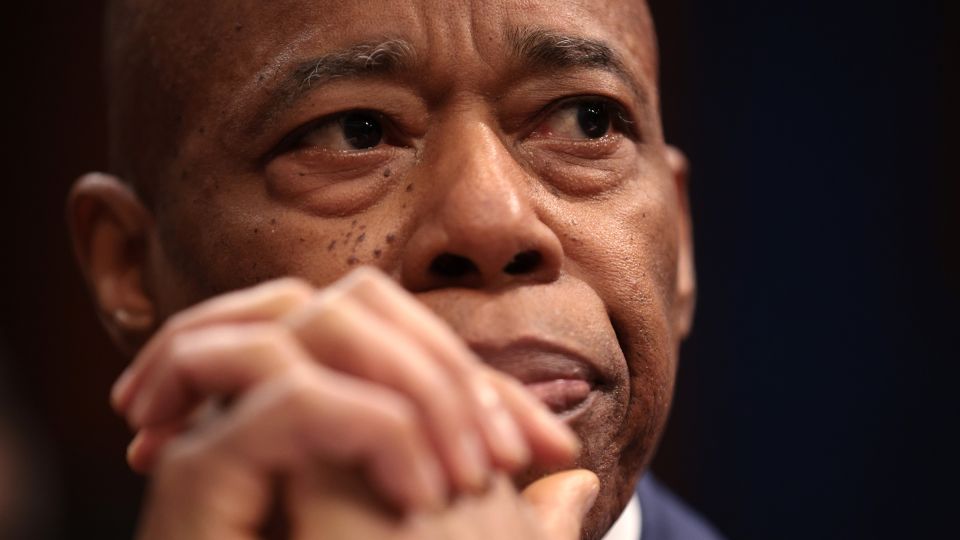So many of the things President Donald Trump has done in his second term could have been scandals in any other political era – including his first term.
But it’s often difficult to make that case conclusively, given we can’t transplant today’s exact events on to another timeline.
We can basically do that, though, with one recent event: the administration’s attempts to lure New York City Mayor Eric Adams to drop his reelection race in exchange for an administration job.
It’s precisely this scenario, in fact, that Republicans and conservative pundits once labeled a serious crime worthy of a special prosecutor – a Watergate-esque scandal possibly even worthy of impeachment.
Or at least, that’s when the shoe was on the other foot.
To recap: The administration has been trying to get Adams out of the race in recent days. CNN reports that talks have included the possibility of an ambassadorship, with countries in discussion including Saudi Arabia. Adams signaled Friday he’s in the race to stay, at least for now.
The idea has apparently been that getting him and maybe Republican Curtis Sliwa to drop out could give former New York governor Andrew Cuomo a better shot in a head-to-head race against democratic socialist New York state assemblyman Zohran Mamdani. Trump might not love Cuomo, but he’s preferable to Mamdani.
New York mayoral candidate, State Rep. Zohran Mamdani (D-NY) greets supporters during an election night gathering on June 24, 2025. – Michael M. Santiago/Getty Images
“I’d prefer not to have a communist mayor of New York City,” Trump said Thursday.
Trump on Friday denied personally offering Adams an ambassadorship, but made a point to add there was “nothing wrong with doing it.”
That’s something the Republicans of 15 years ago vehemently disagreed with. They once claimed this was a crime that called for extensive investigation. It was actually among the first things they floated impeaching Barack Obama for.
The parallels between today and back then are many.
In 2010, the Obama administration admitted to floating administration jobs to then- Rep. Joe Sestak in an effort to get him out of a Democratic Senate primary. The national Democratic Party preferred Sen. Arlen Specter and viewed Sestak as a liability in the general election. (Indeed, Sestak wound up winning the primary and losing the general election.)
In a memo, the Obama administration claimed this was more or less politics as usual.
But Republicans and conservative media allies vociferously disagreed.
Leading the charge was Republican Rep. Darrell Issa of California, who would soon chair the House Oversight Committee. Issa suggested the situation amounted the bribery and repeatedly compared it to Watergate. He at one point floated impeachment. He pointed to a series of laws he argued it could violate.
“We are only one honest election away from no longer being a democracy,” Issa told Fox News’s Megyn Kelly at one point, adding that “this has to stop, and if this president won’t stop it, I will.”
The Republican National Committee called it a “a significant and potentially devastating accusation of political corruption.”

U.S. Rep. Joe Sestak (D-PA) speaks to the media outside the Capitol May 28, 2010. – Alex Wong/Getty Images
Fox News host Sean Hannity suggested it was a “de facto bribe” and an “impeachable offense.” Rush Limbaugh called it a “potential impeachable offense.” Pat Buchanan said it “would seem on its face a criminal violation of federal law.” Karl Rove said such an offer would mean that the “White House committed a felony.”
“Either you’re a liar, Joe Sestak,” Rove said before the White House confirmed Sestak’s account, “or you’re protecting a felon.”
Republican senators were also on the case. All seven GOP members of the Senate Judiciary Committee signed a letter calling for then-Attorney General Eric Holder to appoint a special prosecutor to examine the situation. They cited “the taint of bribes and political machine manipulation.”
Not only is Issa still in Congress, but so are three GOP senators who signed that letter. None of them have made similar allegations about the Adams situation today.
There is a legitimate case to be made that these kinds of offers at least flout the spirit of the law.
One federal law makes it a crime to offer a position created by Congress “as consideration, favor, or reward for any political activity or for the support of or opposition to any candidate or any political party in connection with any general or special election to any political office.”
Another makes it a crime to use “official authority for the purpose of interfering with, or affecting, the nomination or the election of any candidate for the office.”
But these kinds of arrangements are relatively common, including in recent Republican administrations.
In 2004, CNN reported the George W. Bush administration approached Democratic then-Sen. Ben Nelson of Nebraska about becoming agriculture secretary, a move obviously geared towards helping Republicans gain a Senate seat.
In 1981, the Reagan administration even suggested an administration job for then-Sen. S.I. Hayakawa to drop out of a 1982 Republican Senate primary that happened to feature Reagan’s own daughter, Maureen.
Republicans would surely argue that the lack of accountability in the Sestak case make whatever the Trump administration wants to do with Adams fair game.
But they’re the ones who decided to suddenly treat this issue as a major scandal in 2010 – possibly even an impeachable one – in a way it simply hadn’t been in the decades prior (and in a way Democrats haven’t done with the Adams situation today).
Today, Republicans don’t seem to have the same fears for our democracy and worries about presidential corruption.
For more CNN news and newsletters create an account at CNN.com

